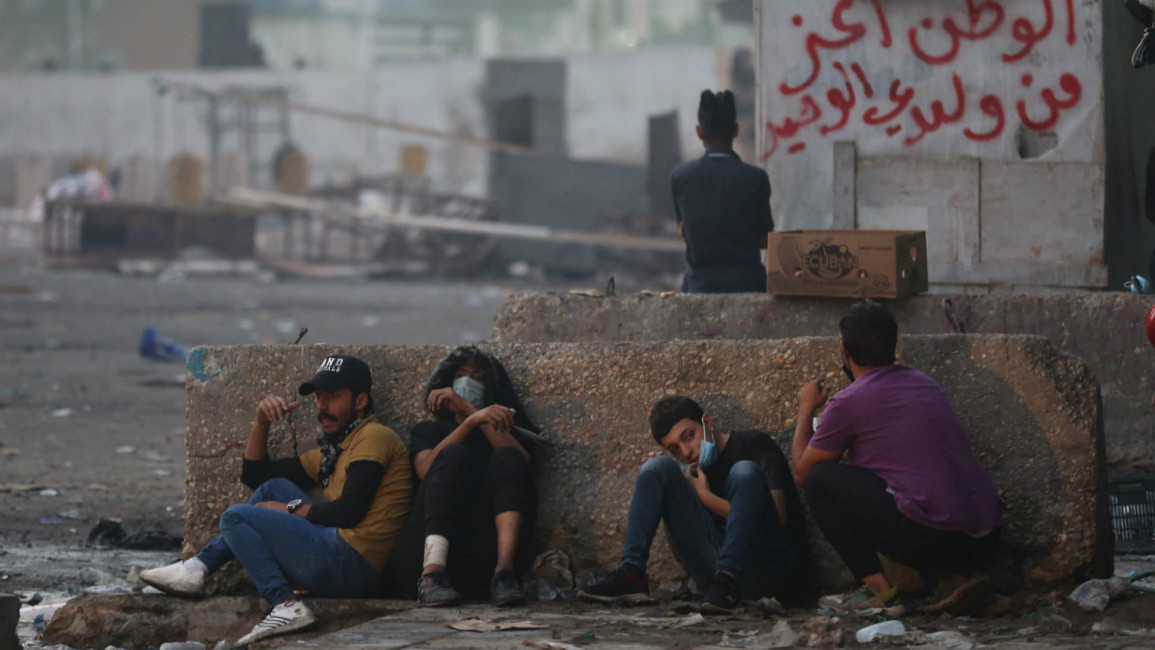'Seriously concerned' US urges early Iraq elections as violent suppression of protesters continues
The US statement came after another night of bloodshed as protests raged in Baghdad and Iraq’s southern cities, calling for political overhaul and an end to the corrupt sectarian system that governs the ruling elite.
Security forces killed four protesters in Nasiriyah and one in Baghdad as it continued its brutal suppression campaign, employing live ammunition, military-grade tear gas grenades, sound bombs and hot water cannons to disperse crowds.
Comment: Tuk-tuks of Tahrir: The unlikely symbol of a revolution in Iraq
Iraqis also continued candlelit vigils for the hundreds of people - mostly young men - who had lost their lives over the past month, mostly from being shot by security forces and snipers belonging to Iran-backed militias.
In a statement released on Sunday, Washington called on "the Iraqi government to halt the violence against protesters and fulfil President (Barham) Saleh's promise to pass electoral reform and hold early elections."
Twitter Post
|
"The United States is seriously concerned by continued attacks against protestors, civic activists and the media, as well as restrictions on internet access, in Iraq," it said.
The mass rallies have blocked bridges, squares and roads across the capital and in the Shia-majority south since October 1, but political forces closed ranks this week to defend the government.
In a televised address last month, Saleh had proposed an early vote after reforms, but the suggestion seems to have been widely rejected by Iraq's political class.
Prime Minister Adel Abdel Mahdi cast them as unrealistic and even firebrand cleric Moqtada Sadr, who first demanded snap elections supervised by the United Nations last month, has gone silent.
In a meeting on Sunday among the country's top leaders, the president, premier and speaker of parliament agreed on reforming Iraq's electoral system but made no mention of an early vote.
The initial fissures among the political elite appear to have closed this week following a series of meetings led by Major General Qasem Soleimani, the head of Iran's Islamic Revolutionary Guard Corps' foreign operations arm.
Saleh had reportedly angered neighbouring Iran by suggesting the premier could resign, according to AFP.
The Iraqi parliament's human rights committee says that 319 people have been killed since protests first erupted, including demonstrators and security forces.
The committee confirmed snipers were active near protest sites and hunting rifles were used against demonstrators as well.



